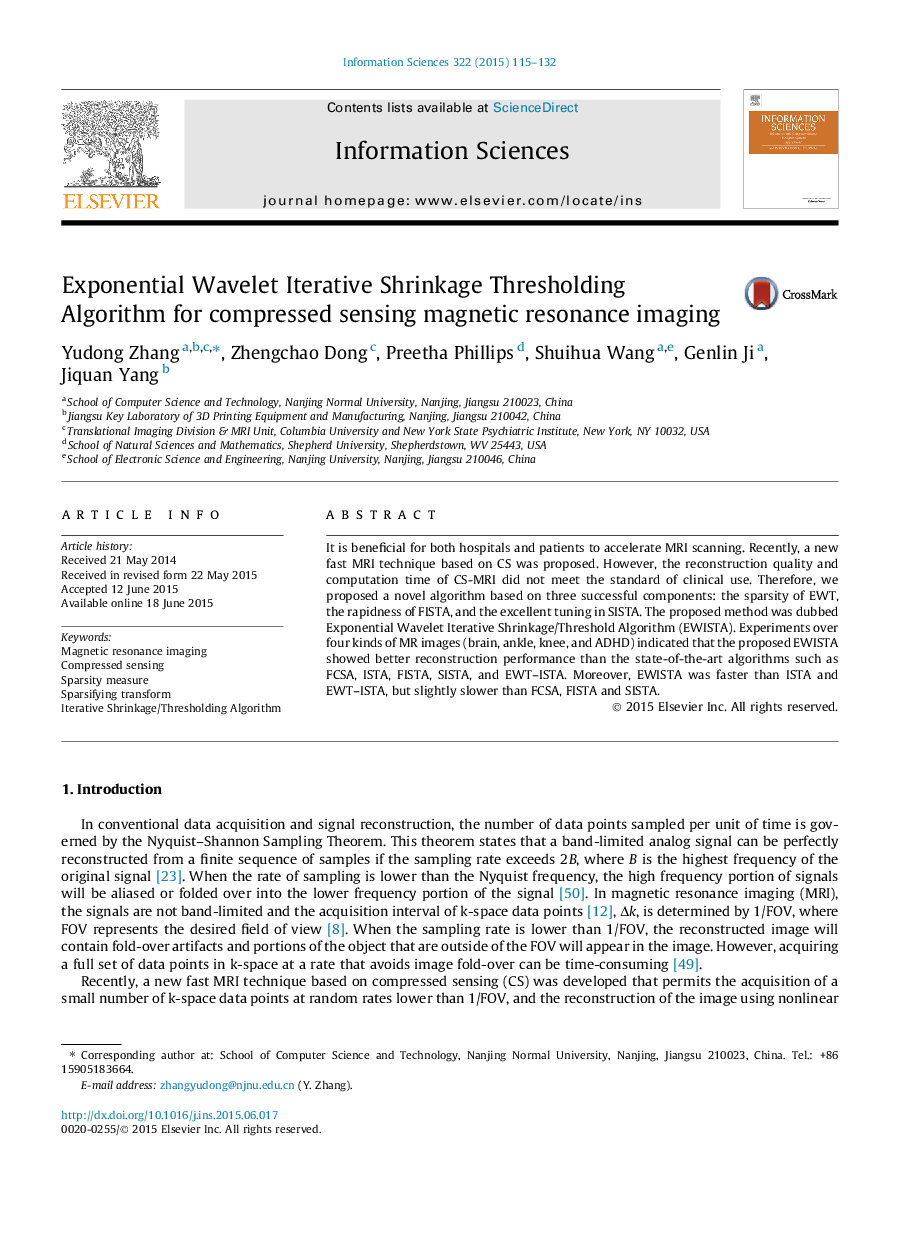| Article ID | Journal | Published Year | Pages | File Type |
|---|---|---|---|---|
| 6857668 | Information Sciences | 2015 | 18 Pages |
Abstract
It is beneficial for both hospitals and patients to accelerate MRI scanning. Recently, a new fast MRI technique based on CS was proposed. However, the reconstruction quality and computation time of CS-MRI did not meet the standard of clinical use. Therefore, we proposed a novel algorithm based on three successful components: the sparsity of EWT, the rapidness of FISTA, and the excellent tuning in SISTA. The proposed method was dubbed Exponential Wavelet Iterative Shrinkage/Threshold Algorithm (EWISTA). Experiments over four kinds of MR images (brain, ankle, knee, and ADHD) indicated that the proposed EWISTA showed better reconstruction performance than the state-of-the-art algorithms such as FCSA, ISTA, FISTA, SISTA, and EWT-ISTA. Moreover, EWISTA was faster than ISTA and EWT-ISTA, but slightly slower than FCSA, FISTA and SISTA.
Related Topics
Physical Sciences and Engineering
Computer Science
Artificial Intelligence
Authors
Yudong Zhang, Zhengchao Dong, Preetha Phillips, Shuihua Wang, Genlin Ji, Jiquan Yang,
